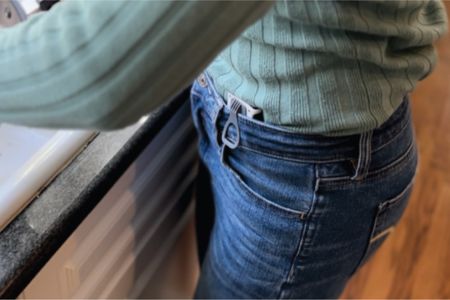
Elitone vs. Incontinence Shorts: Choosing the Right Device for You
Elitone vs. Innovo: Both can be used to tone the pelvic floor and improve incontinence symptoms, but which one is best for you?
If you’re interested in improving your pelvic floor health, you’ve probably heard of Kegel exercises, but have you tried Kegel balls? These small, weighted devices can strengthen your pelvic floor muscles, reduce urinary incontinence, and even enhance sexual satisfaction. In this article, we’ll cover what Kegel balls are, their benefits, how to use them safely, and how they compare to other pelvic floor strengthening tools like Elitone.
Kegel exercises are designed to strengthen the pelvic floor muscles by consciously contracting and relaxing them. These muscles are vital as they support the bladder, rectum, and uterus. Here are some benefits of Kegel exercises:
While simple in concept, many people find it challenging to correctly identify the pelvic floor muscles. Some may mistakenly contract the buttocks, abs, or thighs. Without proper form, these exercises won’t deliver their full benefits. This is why tools can help.
Kegel balls, also known as Ben Wa balls, are small, weighted devices designed to help women strengthen their pelvic floor muscles. These devices usually consist of one or two balls connected by a cord and are made from materials like medical-grade silicone or ABS plastic. Inside each ball is a smaller ball that moves around, creating vibrations when the user moves, stimulating involuntary muscle contractions.
Some people use the term kegel weights, but those are slightly different, with kegel weights typically solid with the purpose of squeezing to keep the heavy weights (aka Kegel eggs, Kegel cones, etc) from falling out. However, common terms are: weighted balls, orgasm balls, Ben Wa balls, venus balls, geisha balls, love balls, jiggle balls, and pleasure balls. (By the way, although around for hundreds of years, the term Ben wa balls, seems to be an English language attempt to make the kegel balls seem ancient Asian. It is not, however, jade eggs (a form of Kegel weights) have an origin that is over 2000 years old!)
Using Kegel (Ben Wa) balls, regularly can bring numerous health benefits similar to Kegel exercises. The primary function of Kegel balls is to help women exercise their pelvic floor muscles without needing to consciously contract them, promoting better muscle tone and blood circulation in the pelvic region. The weight of the balls themselves promote squeezing the correct pelvic floor muscles, so they don’t fall out. Additionally, the slight added vibration may enhance muscle tone with the kinetic motion more than a static kegel weight. They are often a first tool that is used because they can be very inexpensive.
Here are some simple steps to get started with Kegel balls:
How long does it take to see results?
Results vary, but many women notice benefits after about a month of daily use. Start by using them for 15 minutes a day, gradually increasing to two hours. However, avoid using them for more than three hours daily to prevent muscle overstrain.
How do I choose the right Kegel balls?
Kegel balls come in various sizes and weights. It’s best to start with lighter weights and a size that stays securely in place without slipping out. As your pelvic floor muscles strengthen, you can gradually increase the weight.
Can I use Kegel balls right after childbirth?
No, it’s advised to wait at least 8 weeks post-delivery and get your doctor’s approval before using Kegel balls.
Is there an age limit?
There’s no age limit for using Kegel balls. In fact, they’re beneficial for women of all ages, especially as the pelvic floor weakens with age, potentially causing urinary incontinence or other issues.
When should Kegel balls not be used?
In any of these cases, it’s best to consult a healthcare provider for personalized advice.
When selecting Kegel balls, consider the size, weight, and material:
Kegel balls are one of many tools for women looking to strengthen their pelvic floor muscles and improve their overall pelvic health. While Kegel balls can provide benefits for pelvic floor strengthening, they require internal placement and active movement to be effective. The Elitone device, however, offers a non-vaginal solution that is worn externally. Elitone delivers gentle, consistent stimulation to the pelvic floor muscles through electrodes placed on the skin. This hands-free device can be worn under clothing, allowing you to go about your day while it works.
This makes it a great option for women who prefer not to use internal devices or those who may find inserting Kegel balls uncomfortable or impractical. Elitone is also FDA-cleared to treat stress urinary incontinence, offering a safer, more comfortable, and discreet alternative, doing those Kegel exercises for you stronger than you could on your own, and stronger than just vibrations of Kegel balls. Consider your needs and lifestyle to choose the best option for your pelvic health journey.
Elitone is an FDA-cleared device for toning your pelvic floor muscles. This external treatment device is non-invasive and discreet. Elitone can help reduce leaks, tighten your pelvic floor and help you recover from childbirth.